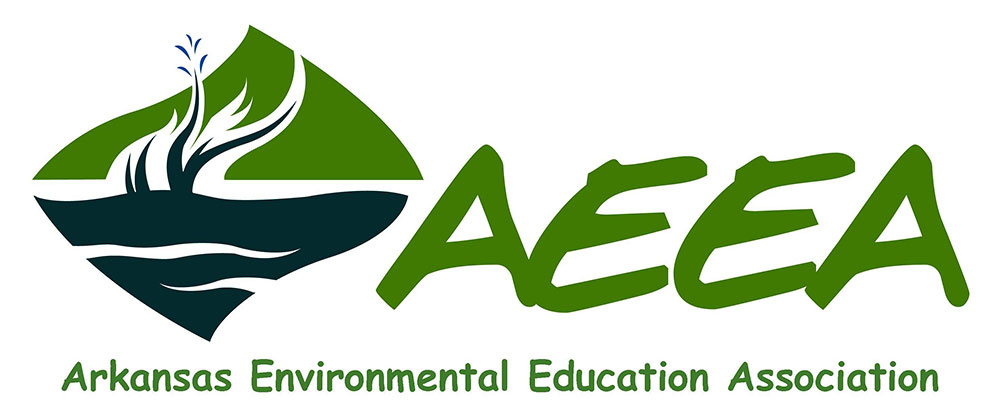AEEA is excited to announce the award of four mini-grants to Arkansas schools and nonprofit organizations that are providing environmental and outdoor education around the state. Read about the inspiring work the 2024 recipients are conducting.
Formal Education – Watson Elementary School, Little Rock
Project: Community Garden Expansion
Watson Elementary has a small and recently established garden that will now be expanded. The goal is to use the outdoor space to foster a deeper connection to the environment while addressing the need for access to fresh, whole foods in the community. Adding two additional beds would allow each grade to adopt a bed and get personally involved in stewardship. A successful project will inspire students, teachers, and the broader community about environmental stewardship and healthy eating.
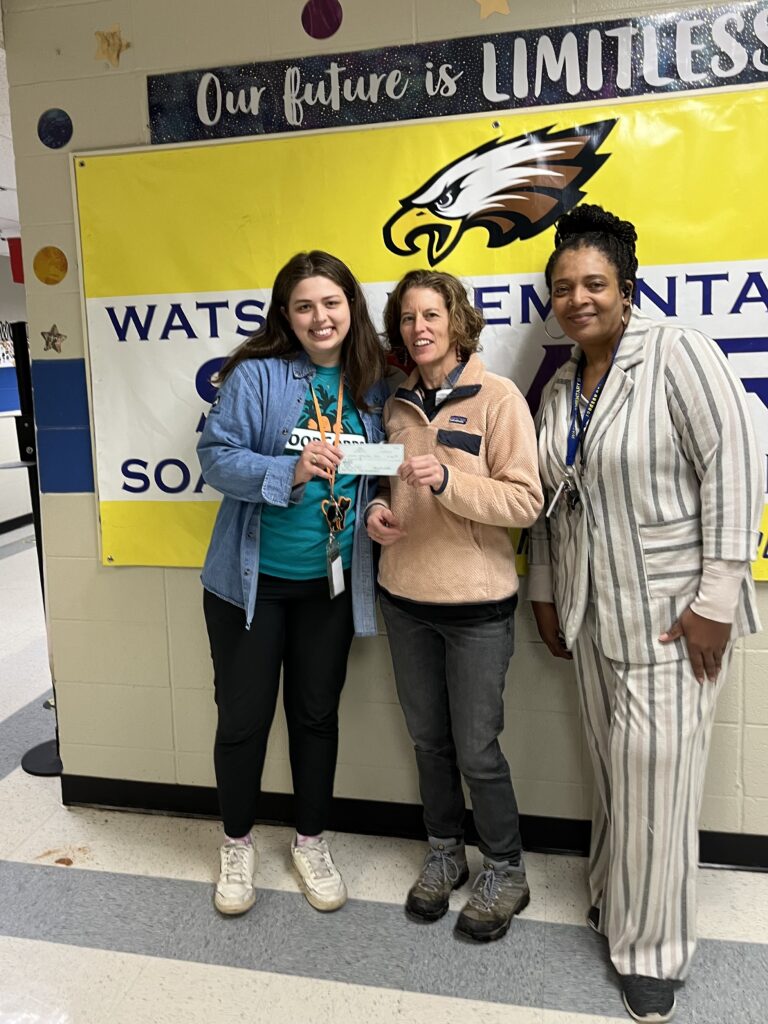
Objectives for the program include:
- Expand the garden space by adding 2 raised beds and planting additional crops, increasing its capacity for hands-on learning.
- Build arches from PVC pipe to support row covers and extend the growing season.
- Support hands-on lessons in the garden, covering topics such as nutrition, biodiversity, and ecological stewardship.
- Involve students in ongoing care and maintenance, fostering a sense of ownership and responsibility.
- Garden maintenance and lessons are already ongoing, but funding will allow expansion for all students to be involved.
- New beds will be installed and filled in January and February 2024. Planting can start in February and continue into May, before students leave for summer break. Crops will be harvested when ready and distributed to families throughout the spring, summer, and fall.
Formal Education – National Park College, Hot Springs
Project: National Park College Pollinator Garden
National Park College (NPC) is converting a 9 x 50 ft empty flower bed, on the campus, to a pollinator garden. Students in ecology classes have already planted twenty native plants in the space. The garden will primarily serve students by providing an outdoor learning space, conveniently located directly outside the Science building. The pollinator garden will facilitate student projects in various biology and geology courses, allowing the study of soils, invertebrate diversity and behavior, botany, bacteria and fungi, as well as training students in the process of observation. This garden will help these students make personal connections with nature.
The garden will also serve NPC employees by providing dynamic and attractive landscaping with signage that allows plant identification. NPC also plans to include working in the garden as an option for participating in NPC’s employee wellness program, and have already heard from staff who want to participate.
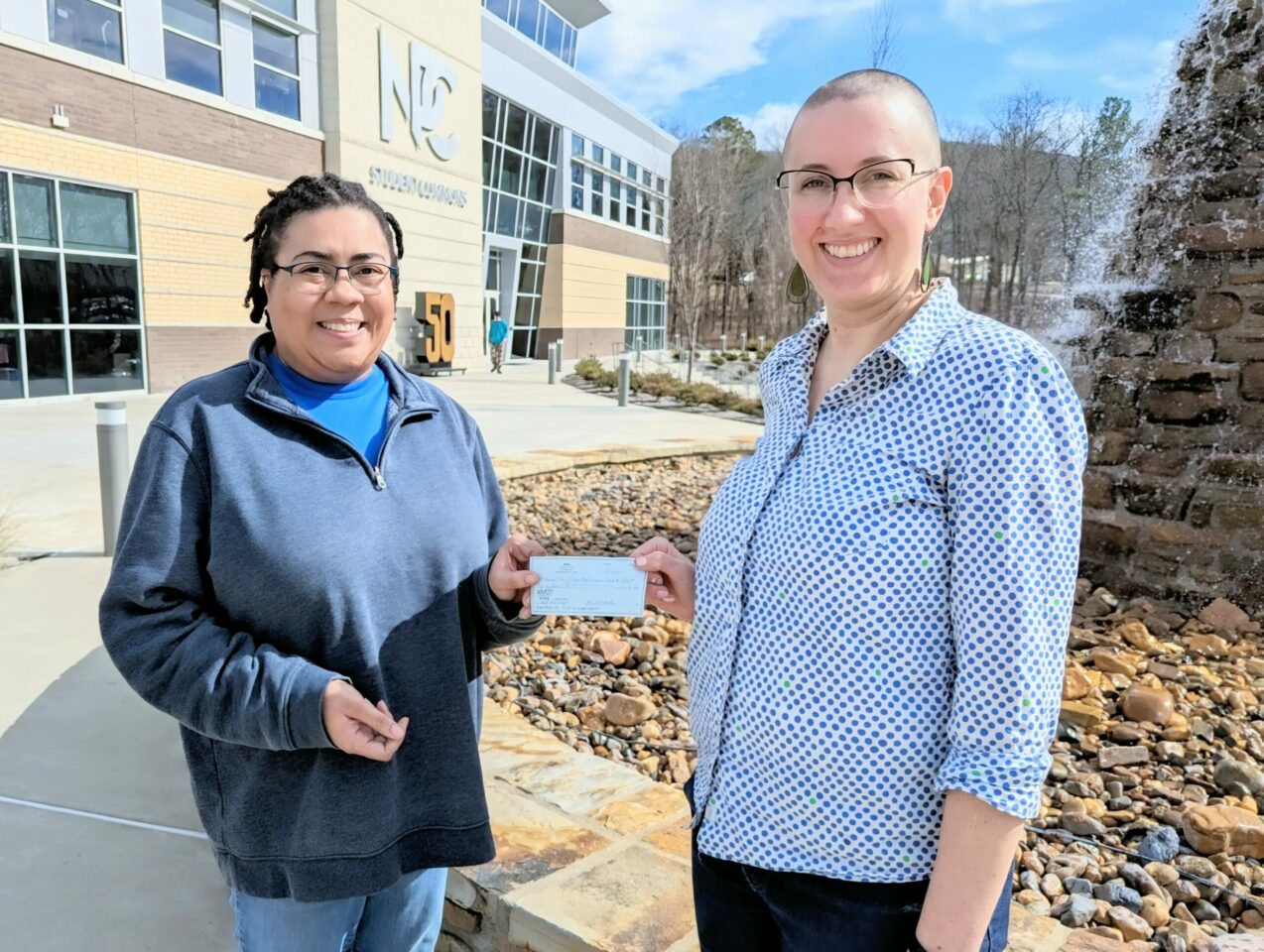
Objectives for the program include:
- Create an outdoor educational space that can be used by various classes and enjoyed by all campus employees, students, and visitors.
- Provide food, habitat, and host plants to local insect and bird species.
- Create wildlife habitat (with food, water, cover, resources for rearing young, and maintained with sustainable practices) that can be certified by the National Wildlife Federation.
- Describe how native plants are beneficial to local food webs.
- Design a garden layout that is both functional for insects and birds and visually appealing to humans.
- Design interpretive signs that explain the garden to visitors and provide plant species identification.
- Give a presentation to the school and local community on the ecological benefits of native plants.
- Ecology students research plant – insect interactions.
- Offer monthly garden maintenance sessions, as part of employee wellness program.
Non-formal Education – CALS Children’s Library and Learning Center, Little Rock
Project: Beekeeping at CALS Children’s Library and Learning Center
The mission of the Central Arkansas Library System (CALS) is to provide resources and services to help residents reach their full potential, and to inspire discovery, learning, and cultural expression. One very special branch is the Children’s Library and Learning Center (CLLC). Among these tremendous resources for environmental education, the library also hosts several beehives (both Langstroth and top-bar) within the garden, as well as an 8-frame Bon Terra observation hive installed inside the library. These hives are a source of great interest to patrons of all ages and programs like the garden club and bee club center the hives as a way to learn about pollinators, the environment, and food systems.
CALS is committed to supporting environmental and nutrition education through the teaching garden and beehives on the CLLC campus. Patrice O’Donoghue, CALS’s teaching garden coordinator, oversees the beehives and garden programs. The bee program is also supported by several community partners who volunteer their time and expertise to sustain the program. These groups include Calm + Confidence Beekeeping, the University of Arkansas Division of Agriculture’s Cooperative Extension Service, Central Arkansas Beekeepers Association, and the Mount Saint Mary High School “Honey Belles” beekeeping club.
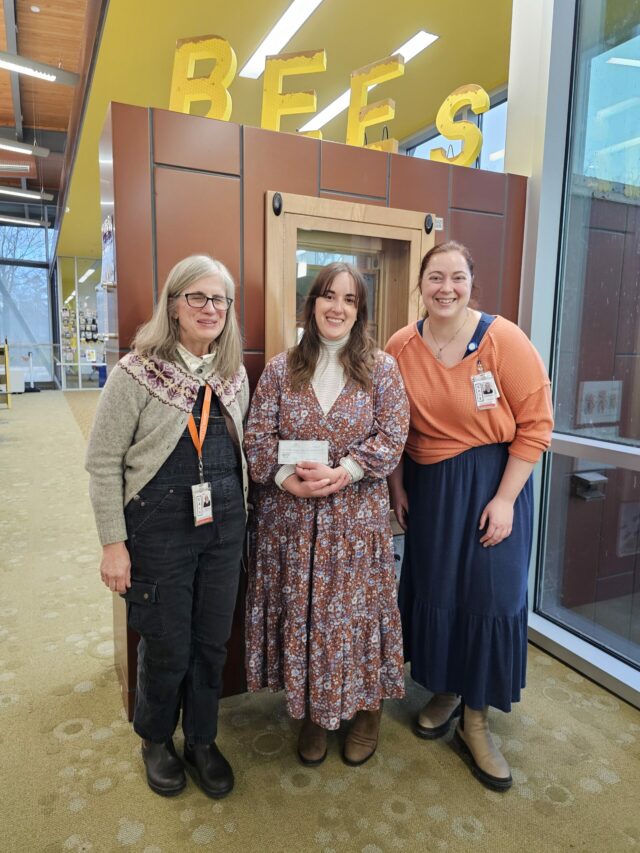
Objectives for the program include:
- Garden club will meet twice monthly, and the bee club will meet monthly over the course of the project term; these programs will utilize the hives as a resource and opportunity to learn about how pollinators contribute to the sustainability of the garden and food systems more widely.
- Host at least one bee-focused program for families, such as a seasonal honey harvest, in partnership with Calm + Confidence Beekeeping.
- Conduct additional similar programs throughout the year.
Non-formal Education – Illinois River Watershed Partnership, Cave Springs
Project: Benthic Macroinvertebrate Lab
Illinois River Watershed Partnership offers benthic macroinvertebrate survey opportunities to students as a mobile lab. Currently, the mobile labs deliver watershed-related lessons to approximately 3,500 elementary, middle, and high school students annually in Northwest Arkansas and Northeast Oklahoma. Lessons and teacher resources are made available free online for teacher download. NWA EAST classrooms have historically participated and are anticipated to participate in next year’s EcoAssessments taking place on the Arkansas side of the Illinois River Watershed. IRWP also aims to incorporate participation from Oklahoma students in subsequent years. A portable macroscope is included to help students identify smaller macroinvertebrates in the field, where traditional microscopes aren’t accessible.
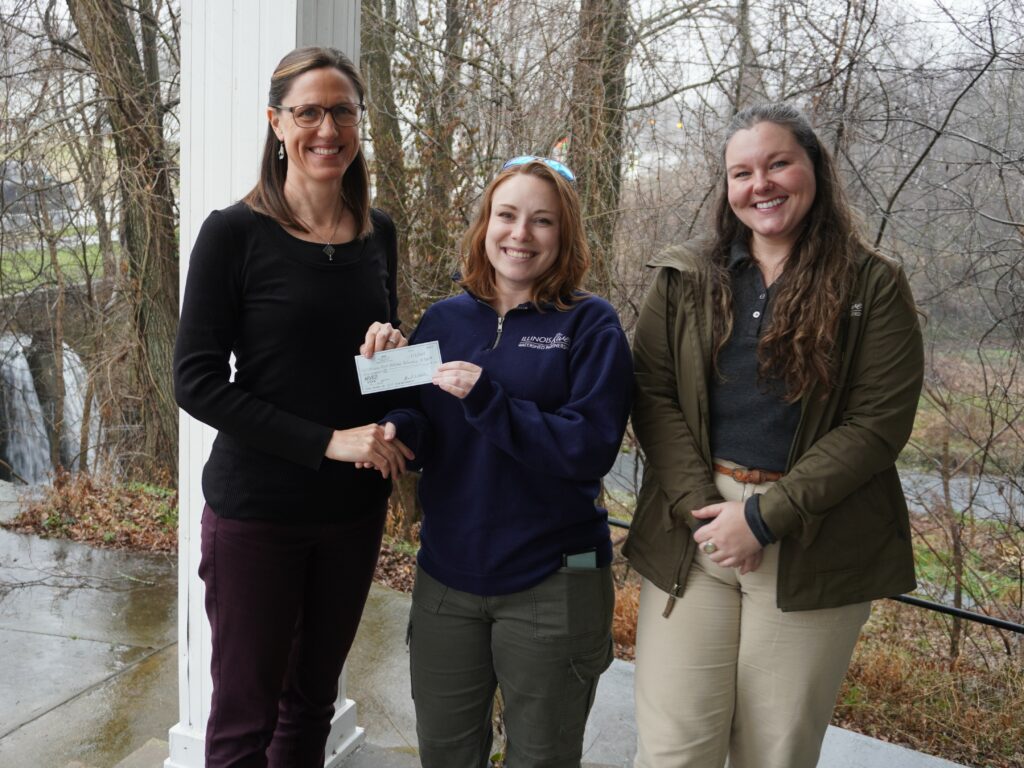
Objectives for the program include:
- Expect to reach an estimated 500 students in the year 2024.
- Estimate that 5 different schools will submit EcoAssessment and Water Quality Monitoring data.
- The mobile labs for benthic macroinvertebrate surveys will occur throughout the year of 2024 and there will be quarterly EcoAssessments for students groups to participate in.
- Students will leave an impact in the environmental science community by participating in data collection that will be included in the IRWP annual water quality report.
- Continue to offer benthic macroinvertebrate mobile labs and opportunities to participate in EcoAssessments and Water Quality Monitoring Assessments in future years.
For more details about the mini-grant program, see the EE Funding page.
